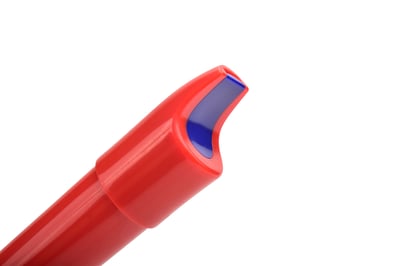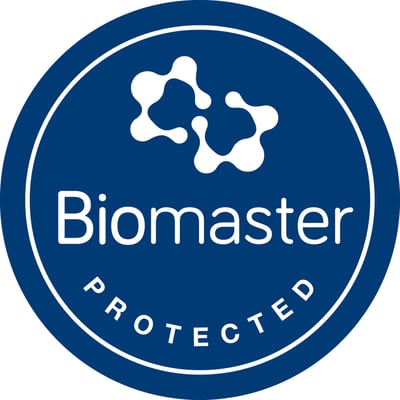Search for topics or resources
Enter your search below and hit enter or click the search icon.

We all understand the benefits of the plastic recorder for beginners and educators. They're lightweight, compact, and have been a popular choice for classroom music for decades.
But what about keeping your recorder clean?
When schools are the perfect breeding ground for bugs and bacteria, is the recorder the right option?
At pBone Music, the instruments that we design and manufacture - such as pBone and pTrumpet - are made from tough, recyclable ABS plastic. Not only is this material robust and lightweight, it's also incredibly easy to clean.
Our instruments also utilize the latest antimicrobial technology, to prevent the growth of nasty bacteria.
So when we designed our first woodwind instrument, pCorder, we knew that hygiene and maintenance would play a big role. After all, the coronavirus pandemic has led to some concerns about the hygiene of whole-class instruments like the recorder.
Let's explore how to clean a plastic recorder like pCorder and how antimicrobial additives can give classroom educators even more security when it comes to hygiene and instrument care.

Keeping a plastic recorder like pCorder is very simple. With some warm soapy water, you can dunk pCorder to remove any gunk and grime. This makes it a good solution for classroom teachers, who have lots of instruments to keep clean. Disassemble the recorder for a good thorough clean both inside and out, or use a wipe for a quick solution on the outside of the pCorder.
Many classroom recorders ship with a cleaning rod, but pCorder does not. Why? There are a few reasons. One was that when we spoke to educators, they told us that cleaning rods were often lost and damaged by pupils. The other big deciding factor was for sustainability purposes. Creating the world's first carbon-neutral recorder means making decisions on how much plastic should be used. By removing the cleaning rod, we use less plastic, while also giving teachers one less thing to worry about.
Every pInstrument uses antimicrobial additives in the manufacturing process. We use a technology called Polygiene BioMaster, an additive that goes into our instruments during the manufacturing process. In our other instruments, we use this technology in key areas, such as the mouthpieces of our plastic brass instruments.
pCorder uses antimicrobial additives throughout the whole design. That means every surface is treated with Polgiene Biomaster. Because the additives are added during manufacture, the technology is effective for the life of the instrument.
This means that pCorder is protected both in and out. So as well as the outside surface of the recorder, the inside is too. Moisture builds up inside the instrument, which can be a potential breeding ground for mold and bacteria. The silver-ion technology in pCorder prevents the growth of microbes and cold, meaning less maintenance, less bad odors, and more time for music!

Besides preventing the spread of microbes, antimicrobial technology can help to prevent the build-up of condensation. This ensures that pCorder keeps that sweet recorder sound, without the need for repairs and replacements.
Moisture build-up also played a part in the design of our unique recorder case. The recyclable tube is lined with grease-proof paper to ensure moisture cannot spoil the fun. There is also a small hole at the bottom of the cardboard case, to provide ventilation and keep those bad odors at bay.
These thoughtful design features help to make pCorder the ultimate classroom recorder. Antimicrobial technology that in recent tests was proven to be 99.99% effective against E. coli and 99.91% effective against Staphylococcus aureus. A cinch to clean: you could drop a class set in the bath and have a sanitized set in no time! All in a user-friendly case that makes pCorder easy to store and maintain.
Adam is the Content Manager at pBone Music. This should mean that he’s the ideal person to write about himself, but he finds boasting in the third person a little awkward. He honed his word wizardry with a degree in English Language and Literature at the University of Leeds. He has since written copy for clients and businesses across the land, from awards to something beginning with “z”. He also spent a number of years as a musician. He has written pop songs and even jingles for kids, performed more first dances at weddings than you could shake a pBuzz at, and once played a gig for a pie company at The Etihad Stadium in Manchester. When he’s not reminiscing about those good old days, you might find Adam enjoying the football (although as an Everton fan, that can be difficult). He also loves spending time with his partner, Jen, and his family and friends, and sincerely hopes they feel the same way.
Topics: